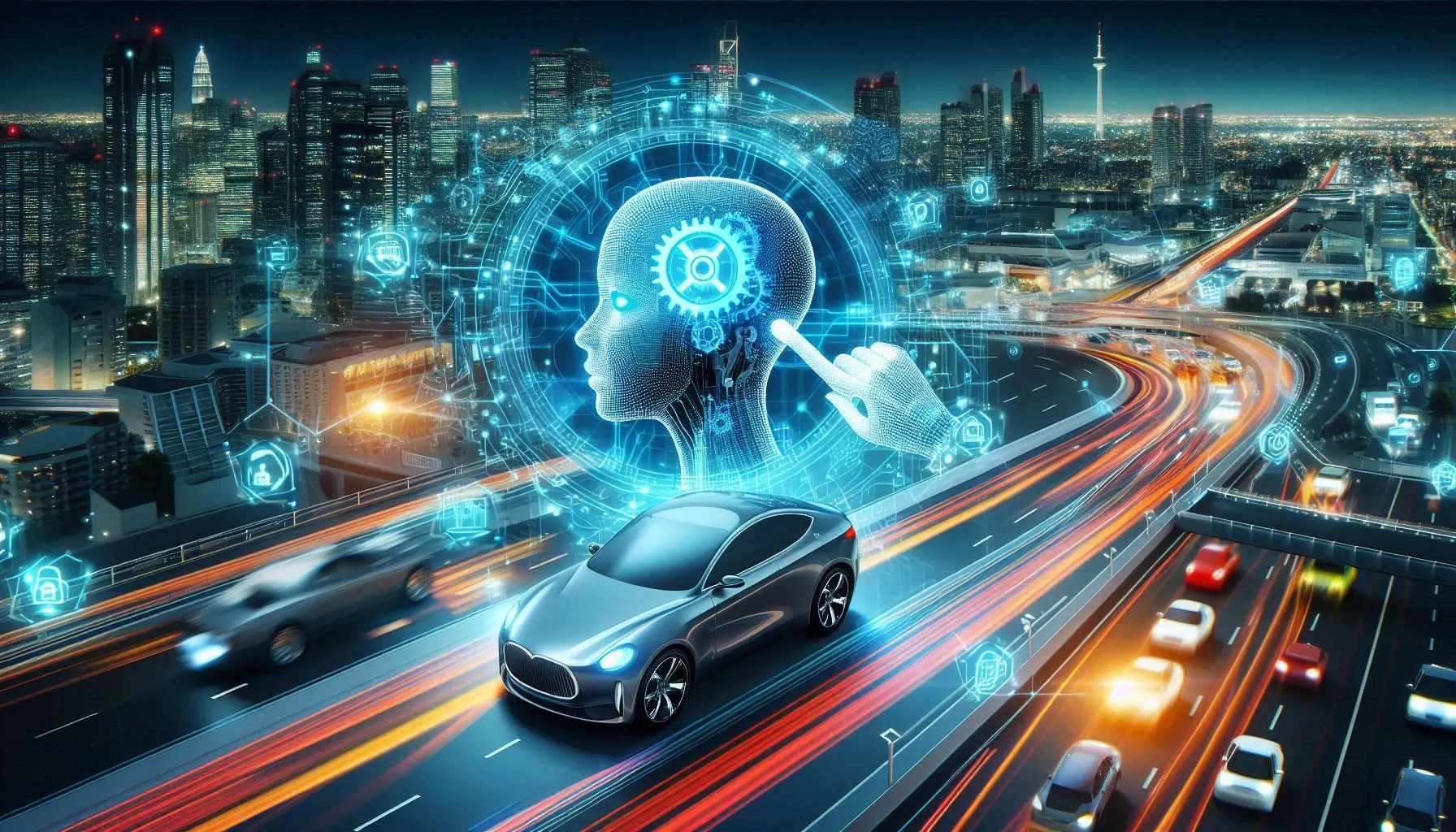Artificial Intelligence in Automobiles: A Technology Shaping the Future
Artificial intelligence (AI) is significantly transforming the automotive industry, enhancing vehicle performance, safety, and user experience. This article explores how AI applications in automobiles work and their potential for the future.
1. Autonomous Driving Systems
One of the most striking applications of AI in automobiles is in autonomous driving systems. Autonomous vehicles are equipped with sensors and cameras that allow them to perceive their surroundings and analyze this data through AI algorithms. The vehicle can perform tasks such as adjusting speed and changing lanes, thus enhancing safety while providing a more comfortable driving experience. However, the reliability of these systems and their ethical implications remain points of discussion.
2. Data Analytics and User Behavior
AI can process the vast data sets collected by vehicles to analyze driver behavior. Cars can learn a driver’s habits and develop systems that, for instance, detect fatigue and provide alerts. Such applications promote safe driving and improve vehicle efficiency. Analyzing user behavior also helps automakers optimize their products better.
3. Security Systems
Safety is one of the most critical areas for AI applications in automobiles. Intelligent braking systems and pre-collision alerts are just a few examples of how AI contributes to vehicle safety. These systems can identify potential dangers in advance, alerting the driver or automatically applying brakes to prevent accidents. However, the potential for malfunction in these systems must be addressed with care.
4. Personalized User Experience
AI offers opportunities for personalizing the user experience in vehicles. Smart assistants enable drivers to control their cars using voice commands. For instance, a vehicle can learn a driver’s music preferences and start playing their favorite songs. Such applications create a more enjoyable experience for drivers.
5. Future Perspectives
The future holds great promise for artificial intelligence in the automotive industry. Beyond autonomous driving technologies, AI can work in conjunction with vehicle-to-vehicle communication and smart city concepts to manage traffic flow more efficiently. As interaction between vehicles and infrastructure increases, both safety and energy efficiency may significantly improve.
Examples of Artificial Intelligence in the Automotive Industry
As artificial intelligence continues to evolve, its applications in the automotive sector have become increasingly diverse and impactful. Below are some notable examples that illustrate how AI is being integrated into vehicles, enhancing performance, safety, and the overall driving experience.
1. Waymo: Autonomous Vehicles
A leader in autonomous driving technology, Waymo’s self-driving cars utilize advanced AI algorithms for navigation and obstacle detection. Their vehicles can operate without human intervention in designated areas, showcasing the potential for fully autonomous transportation .
2. Tesla: Driver Assistance Systems
Tesla vehicles come equipped with an AI-powered driver assistance system that helps with lane keeping, adaptive cruise control, and parking. The system continuously learns from real-world driving scenarios, improving its performance over time .
3. Ford Co-Pilot 360:
This suite of safety features includes technologies such as automatic emergency braking, blind-spot monitoring, and lane-keeping assist, all powered by AI to enhance driver safety .
4. General Motors: Predictive Maintenance
GM uses AI to analyze vehicle data for predictive maintenance. By monitoring vehicle performance in real-time, AI can predict potential mechanical issues before they occur, reducing repair costs and increasing vehicle reliability .
5. Google Maps and Waze: Enhanced Navigation Systems
Both applications use AI to analyze traffic patterns and provide real-time navigation updates. They can suggest alternate routes to avoid congestion, improving travel time and efficiency for drivers .
6. BMW: Intelligent Personal Assistant:
BMW integrates AI through its Intelligent Personal Assistant, which allows drivers to control various vehicle functions using voice commands. This enhances user interaction and promotes safer driving by minimizing distractions .
7. IBM: Intelligent Transportation Solutions:
IBM has developed AI systems that help cities manage traffic flow more effectively. By analyzing data from vehicles and infrastructure, these systems can optimize traffic signals and reduce congestion .
8. Nissan: ProPilot
Nissan has developed an autonomous driving technology called “ProPILOT.” This system assists the driver by providing an autonomous driving experience under certain conditions. ProPILOT enhances driving safety in traffic flow by supporting automatic lane changes and speed control.
9. Audi: Traffic Jam Pilot
Audi’s “Traffic Jam Pilot” is an autonomous driving system that allows the vehicle to be controlled without driver intervention in heavy traffic situations. Audi’s AI algorithms analyze traffic conditions to ensure safe vehicle movement.
10. Hyundai: Smart Cruise Control
Hyundai stands out with its AI-powered “Smart Cruise Control” system. This system automatically adjusts the distance to the vehicle in front, providing a more comfortable driving experience for the driver. Additionally, Hyundai’s “Personal Intelligent Assistant” app allows users to control vehicle functions using voice commands.
11. Mercedes-Benz: Drive Pilot
Mercedes-Benz has developed an autonomous driving technology called “Drive Pilot.” This system allows the driver to take their hands off the wheel under certain conditions (e.g., highway driving) while ensuring the vehicle moves safely. Moreover, the AI-powered “MBUX” (Mercedes-Benz User Experience) system enables users to control vehicle functions via voice commands.
12. Volvo: Pilot Assist
Volvo, focusing on safety, is known for its “Pilot Assist” system. This system supports automatic lane changes and speed control, assisting the driver. Volvo’s AI systems analyze traffic conditions in real-time to enhance driving safety.
13. Porsche: Porsche Connect
Porsche has integrated AI technology through its “Porsche Connect” application. This app allows users to monitor their vehicle’s status, optimize routes, and remotely control the vehicle. Additionally, Porsche is also working on autonomous driving technologies.
Conclusion
Artificial intelligence is supporting innovations across many automotive brands and improving the driving experience. From autonomous driving to intelligent assistant systems, these technologies are making vehicles safer and more user-friendly. In the future, the role of artificial intelligence in the automotive sector is expected to grow, contributing to the development of sustainable transportation solutions.
